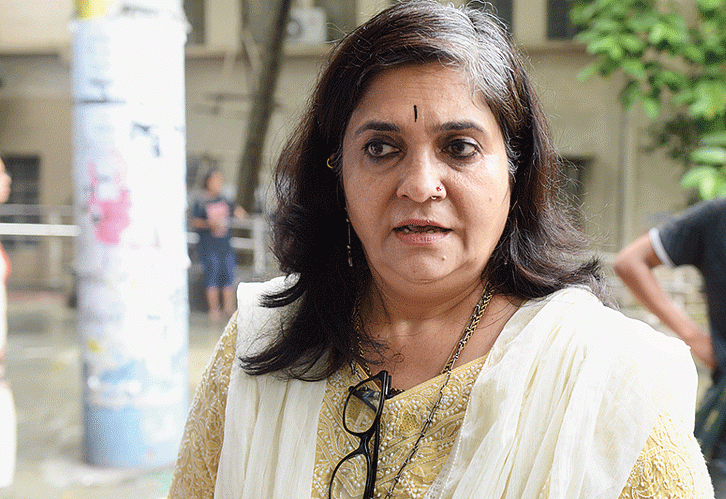India: Writer and human rights defender, Teesta Setalvad, faces imprisonment after Gujarat High Court rejects bail plea
Image courtesy of Teesta Setalvad
Update: On 19 July 2023, Teesta Setalvad was granted regular bail by the Supreme Court. As part of her bail conditions, her passport continues to be held by the court, limiting her ability to freely travel outside of India while investigations against her remain ongoing. On 26 June, Setalvad’s legal team submitted a petition to Gujarat High Court to quash the First Incident Report lodged by the police against her.
7 July 2023: PEN International is deeply concerned by ongoing efforts to imprison Teesta Setalvad after her plea for regular bail was rejected. The organisation calls on the Indian authorities to immediately drop all charges against Setalvad, and to end their persecution of writers, journalists, and activists for their peaceful expression.
On 1 July 2023, the Gujarat’s High Court, located in western India, rejected a plea for regular bail submitted by Teesta Setalvad’s legal team. The High Court ordered that she immediately surrender herself to the authorities. However, a last-minute intervention by India’s Supreme Court has granted her an extension to her interim bail, protecting her from being detained, until 19 July 2023 when the next hearing of her case is scheduled to take place.
‘The ongoing case against writer and activist Teesta Setalvad for her work in support of human rights is a chilling example of the shrinking space for dissenting voices within the world’s largest democracy. We call for all charges against her to be dropped immediately so that she can continue her vital work in support of others,’ said Ma Thida, Chair of PEN International’s Writers in Prison Committee.
Teesta Setalvad was initially detained on 25 June 2022 by anti-terror police on allegations of criminal conspiracy and forging evidence as part of her efforts to seek government accountability for the 2002 Gujarat Riots, a period of inter-communal violence that led to the deaths of hundreds of Indian citizens. Setalvad has alleged that she was assaulted by two members of the anti-terror police when she requested permission to speak with her lawyer. She was granted interim bail by India’s Supreme Court on 2 September 2022.
On 24 June 2022, just one day prior to Setalvad’s detention, the Supreme Court rejected a plea submitted by Setalvad and co-petitioner Zakia Jafri, whose husband, the former parliamentarian Ehsan Jafri, was killed during the riots. The plea sought to reopen an investigation into the potential involvement of local government officials in the violence. Among those accused of being complicit in the violence was then Chief Minister of Gujarat and current Prime Minister of India, Narendra Modi. Despite reports of serious flaws in the initial investigation, the Supreme Court-appointed investigatory body concluded that there was insufficient evidence to prosecute Modi or any other senior government official.
The targeting of Teesta Setalvad has drawn swift international condemnation, including from Amnesty International India and the United Nations Special Rapporteur on Human Rights Defenders, Mary Lawlor, who had called for her release at the time of her arrest.
The ongoing case against Teesta Setalvad takes place within an increasingly hostile environment for free expression in India, where writers, journalists and human rights activists are frequently targeted for their peaceful criticism of the Indian government. The ongoing crackdown on freedom of expression across the country has resulted in numerous detentions on spurious charges, including scholars Hany Babu and Anand Teltumbde, who was released on bail in November 2022 after over two years’ imprisonment. Poet Varavara Rao, who has been released on medical bail, continues to have an active case against him and faces a potential death sentence if convicted.
Background:
Teesta Setalvad a is writer, journalist and one of India’s most high-profile human rights defenders.
Initially embarking on a career in journalism in 1983, Setalvad has over a decade’s experience writing for news outlets including The Daily, The Indian Express and Business India. In response to the 1992 demolition of the Babri Masjid by Hindu nationalists, Setalvad left mainstream journalism along with her husband and fellow journalist, Javed Anand, to establish a monthly magazine called Communalism Combat, which sought to address issues of religious intolerance and the role of certain political parties which stoke inter-religious hostilities within Indian society.
In the immediate wake of the 2002 Gujarat riots, a period of inter-communal violence that led to the deaths of over 1,000 Indian citizens, the majority of whom were Muslim, Setalvad established Citizens for Justice and Peace (CJP), an NGO dedicated to providing legal and financial aid to the victims of the riots. Over the following years, Setalvad rose to prominence as an activist, mounting numerous campaigns for the rights of women and marginalised groups across India.
In 2017, Teesta Setalvad published her memoir, titled Foot Soldier of the Constitution, charting her career from journalist to civil rights activist and human rights defender.
For further information please contact Ross Holder, Head of the Asia/ Pacific Region at PEN International, email: [email protected]

